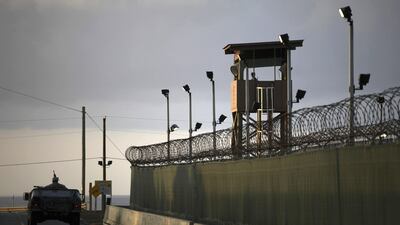Winston Churchill is supposed to have joked that "you can depend upon the Americans to do the right thing, but only after they have exhausted every other possibility." It is a fine, affectionate quip and it sums up an extraordinary and extremely detailed new report by the US senate select intelligence committee. The report was into torture, one of the most unpleasant by-products of the struggle against terrorism.
Perhaps because so much else is going on in Washington with more immediate consequences, this report into what may seem ancient history received limited publicity. But senate committee staffers spent more than five years analysing about 6.3 million pages of documents, at a cost of US$40 million. They produced a secret 6,700-page review and around 500 pages have been made public.
Their conclusions are worth thinking about, especially this one: "the use of the CIA's enhanced interrogation techniques was not an effective means of obtaining accurate information or gaining detainee cooperation." There were dissenting voices on the committee, but this conclusion is clear. Torture or "enhanced interrogation techniques" such as waterboarding generally does not work and is illegal. More sophisticated and less inhumane techniques are more likely to be effective. The "ticking bomb" scenario so familiar from Hollywood movies, where a terrorist is tortured into spilling the beans about some impending attack and therefore innocent lives are saved, does not bear any relation to reality.
_____________________
More from Gavin Esler
Could western democracies learn from the Chinese political model?
Too many politicians favour abuse over facts, rancour over rigour
_____________________
The senate committee report was published as I happened to meet a torture victim, Terry Waite. He was a special envoy from the Archbishop of Canterbury, sent to Lebanon in the 1980s to try to secure the release of hostages kidnapped by Hizbollah. Despite assurances of safe conduct, Terry himself was kidnapped. He was held in terrible conditions from 1987 until 1991, a total of 1,763 days in captivity and he was tortured repeatedly. Years later Terry, a good man with a strong religious faith, was able to meet and forgive his torturers. But he spoke to me in Canterbury with particular force about those who practice or condone torture by making the argument that torture may be necessary to protect the rest of us from some great evil, most recently terrorism, particularly Islamist terrorism.
Terry Waite is not alone in concluding that while torture is unacceptable everywhere, it is particularly unacceptable in democratic countries. Torture, inevitably, undermines the very values democracies claim to uphold and protect, including the rule of law. This was recognised formally in the United States as far back as 1863 during the darkest period of the American civil war. America has faced many threats, including those from ISIL and Al Qaeda, from Nazism and the Soviet Union. But the one threat that came closest to destroying the United States came from the great rebellion of the confederate states. In 1863 things looked bleak. If the southern rebels had succeeded then the US would have ceased to exist. Faced with a bloody war for survival, Abraham Lincoln asked Franz Lieber, a German American legal scholar, to outline a code for what was permissible and what is not allowed in warfare. The Lieber Code was published on April 24, 1863. It is formally known as "Instructions for the Government of Armies of the United States in the Field, General Order Number 100." The Lieber Code expressly forbids American forces from using torture to extract confessions under any circumstances.
_____________________
More from Opinion
From nation states to global cities, what is the future of urbanism?
Is nuclear war a real possibility once more?
_____________________
The 2017 Senate committee report reminds us that in Bagram airforce base, in Abu Ghraib and in Guantanamo Bay, the United States did not live up to its own best standards. Britain, in a period of great fear when dealing with IRA terrorism during the 1970s, also treated some prisoners in ways which have been described as torture. As with the senate report, these British "enhanced interrogation techniques" were largely ineffective and quite probably counter-productive. When stories of the abuse of Irish prisoners spread, some in the IRA at the time claimed it actually encouraged young men to join the terrorist organisation.
We must not make the same mistakes again. Last week the head of the British security service MI5, Andrew Parker, said there has been a "dramatic upshift in the threat" from Islamic terrorism in the United Kingdom, in part because the destruction of ISIL in Syria means these deluded criminals will be looking for other easier targets. These are dangerous times. But the institutions of Britain, America and other countries will survive terrorist attacks provided that we do not fall into the trap of pursuing the politics of the last atrocity, allowing a terrorist outrage to panic us into undermining our own values. The senate report shows that a great country can admit to mistakes, and learn from them. And the Lieber Code did not stop the US winning the civil war. Acting humanely even towards those who threaten us does not weaken us. It makes us strong. And it makes the defeat of our enemies more speedy and more assured.
Gavin Esler is a journalist, television presenter and author


